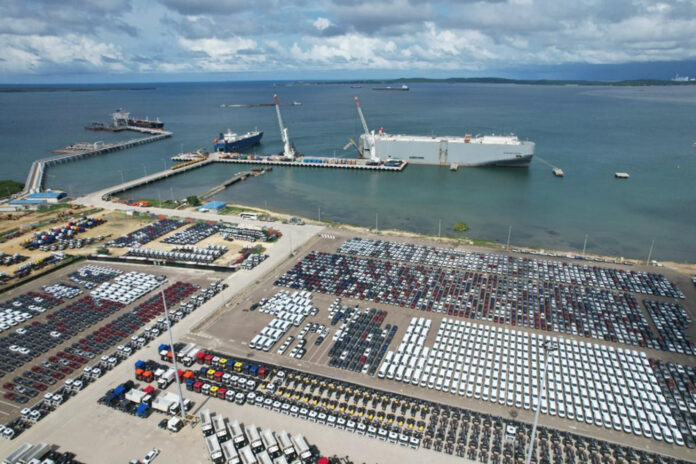Finnish vendor Nokia and Colombian operator Claro have deployed a private LTE network at Sociedad Portuaria Puerto Bahía in Cartagena, billed as the “most modern” multipurpose maritime port in Colombia. The solution includes Nokia’s Digital Automation Cloud (DAC) private networking solution, plus its MX Industrial Edge (MXIE) compute platform. The network uses local spectrum from Claro Colombia, owned by Mexico-based América Móvil.
Nokia said Puerto Bahía is the “first multipurpose terminal” to adopt a private LTE t in Latin America. Its new network is geared for “industrial-grade” and “mission-critical” connectivity in “piers and yards”, it said. “It will reliably and securely connect hundreds of workers, sensors, equipment, vehicles and cargo,” it added, talking up the “high bandwidth and low latency”, plus “network predictability” of LTE-based private cellular.
Puerto Bahía manages general cargo and hydrocarbons, plus other assets. Its general cargo division handles roll-on / roll-off (Ro-Ro) containers, and both project and bulk cargo transit. It is the largest private hydrocarbon terminal in Colombia, and the “Ro-Ro cargo leader” in the country, also – “handling 95 percent of the Caribbean coast market and more than 50 percent of the Colombian market”, said a statement.
The new network will be put to work, first, to automate the port’s hydrocarbons terminal. It will provide connectivity between terminal operations systems (TOSs) and personnel, and also between cranes in docks and yards. Nokia flagged a use case to track up to 20,000 vehicles at peak times around the port area. Nokia’s latest boiler-plate figures state it has“more than” 595 customers for its DAC and MPW private network solutions.
Rodrigo Torras, president of Puerto Bahía, said: “Innovation is at the heart of Puerto Bahía. Our aim as a company is to implement technological tools that help us… [to be] a Smart Port 4.0. With Claro and Nokia deploying… we are undoubtedly setting a great scenario for the optimization of our logistics and the development of various use cases that will lead us to a more effective operation and benefit our customers, suppliers and collaborators.”
Carlos Zenteno, president of Claro Colombia, said: “This joint development… [shows] that when we invest in state-of-the-art infrastructure, we are strengthening advancements in technology, and enhancing safety and port efficiency to promote digital transformation in one of the country’s most prominent ports. With this… private wireless network, we will achieve the goal of supporting Puerto Bahia to become an Industry 4.0 port.”
Osvaldo Di Campli, president Nokia in Latin America, said: “Industrial-grade… [private] networks are the cornerstone of ports’ digital transformation journey. With this project, Sociedad Portuaria Puerto Bahía confirms its leadership in the digitalization of port operations in Latin America and the Caribbean. We thank Sociedad Portuaria Puerto Bahía and Claro Colombia for their trust in Nokia and our solutions. We are excited about our further collaboration.”

